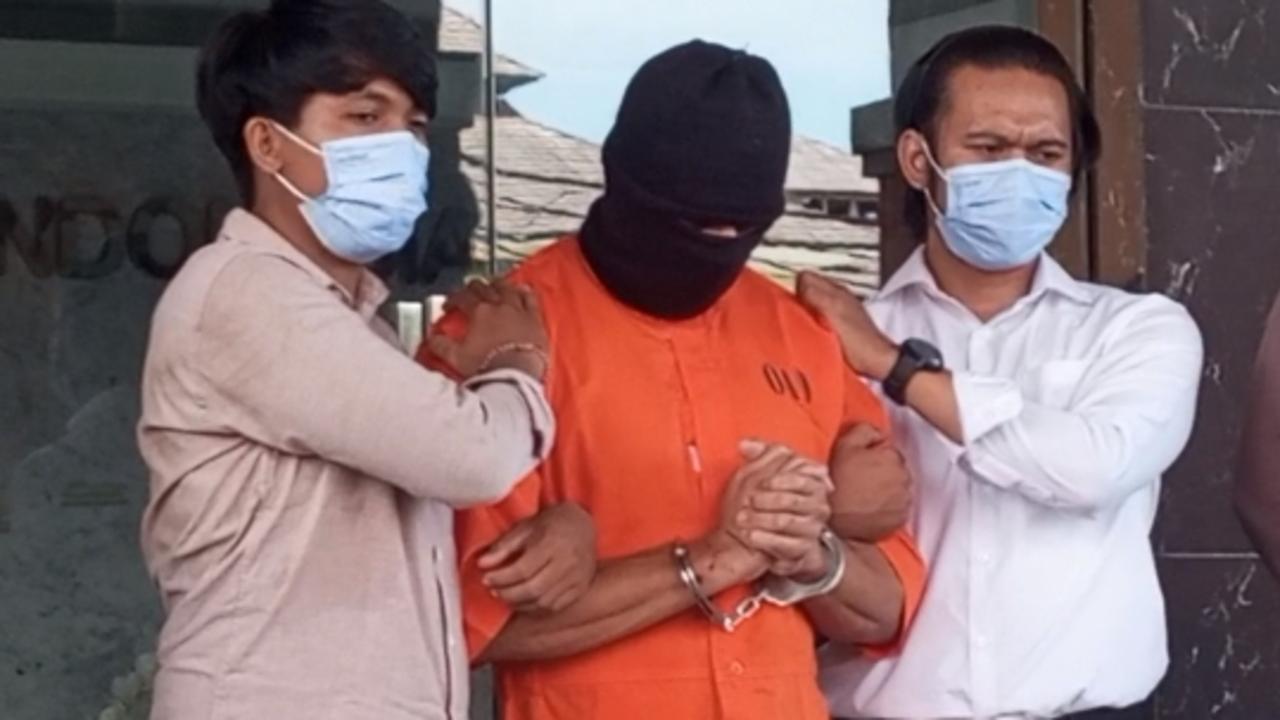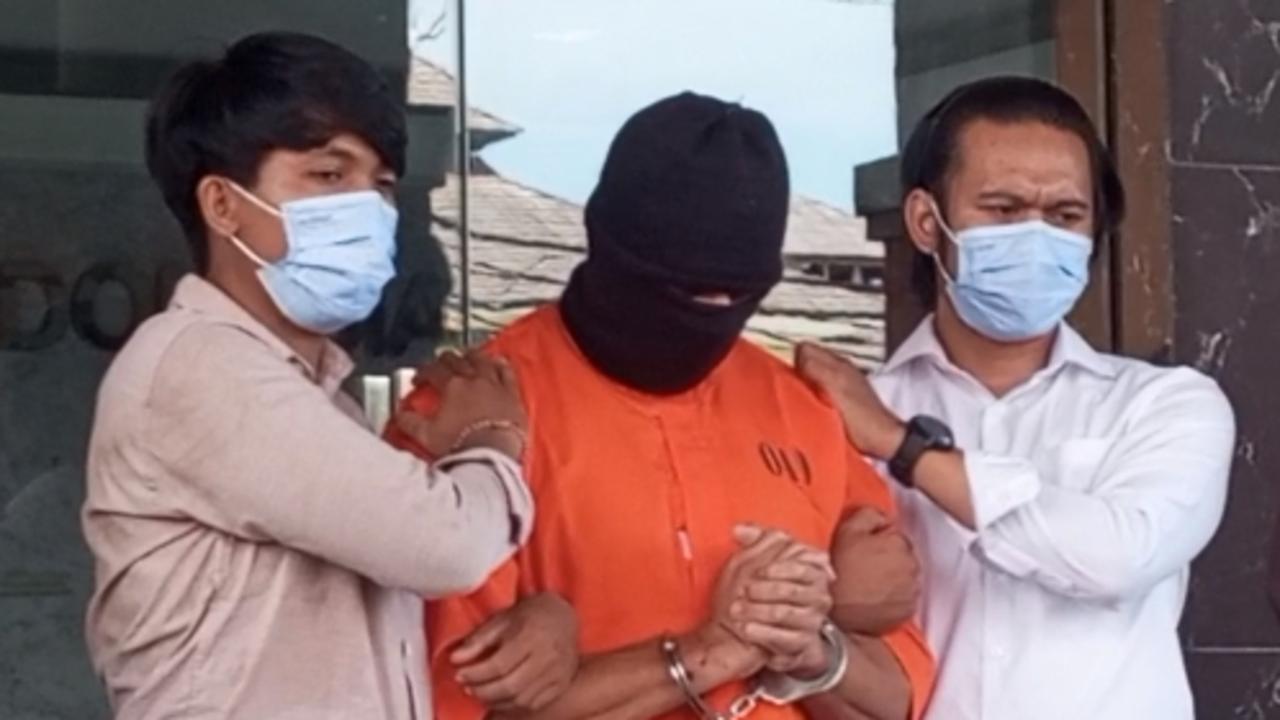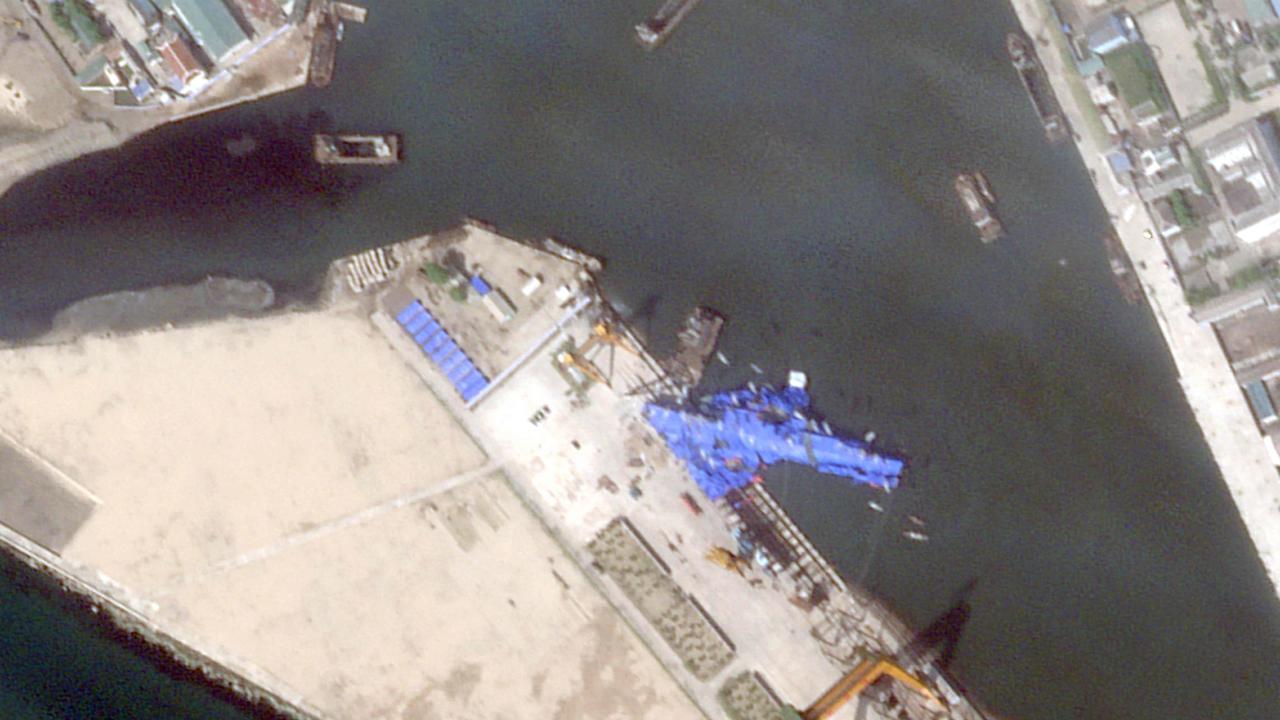China accuses Australia of creating conflicts as CCP shortcomings grow
Chairman Xi Jinping’s message is strident and clear: “The East is rising, and the West is declining”. But the rise has run into a cliff.
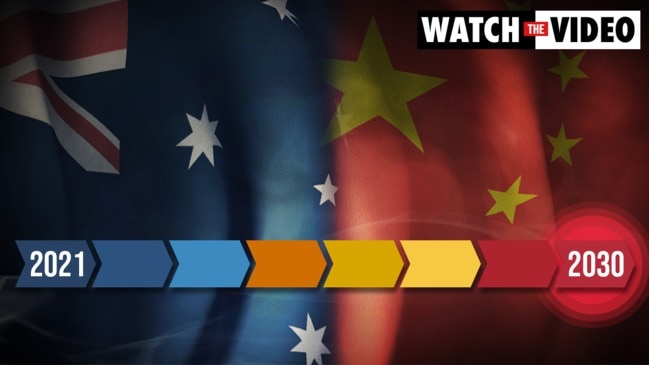
Chairman Xi Jinping’s message is strident and clear: “The East is rising, and the West is declining”.
But the rise has run into a cliff.
Australia and Japan this week put words to Beijing’s Achilles Heel. A joint meeting of defence and foreign ministers expressed “serious concerns” about the repression of the Uighur ethnic minority in Xinjiang province. They highlighted the crackdown on dissent in Hong Kong. They mentioned China’s aggressiveness in the South and East China Seas and over Taiwan.
This was the message the two Asia-Pacific partners took to the Group of Seven (G7) assembly of the world’s “most advanced” economies.
It wasn’t supposed to be like this.
RELATED: China hit by devastating Covid-19 outbreak
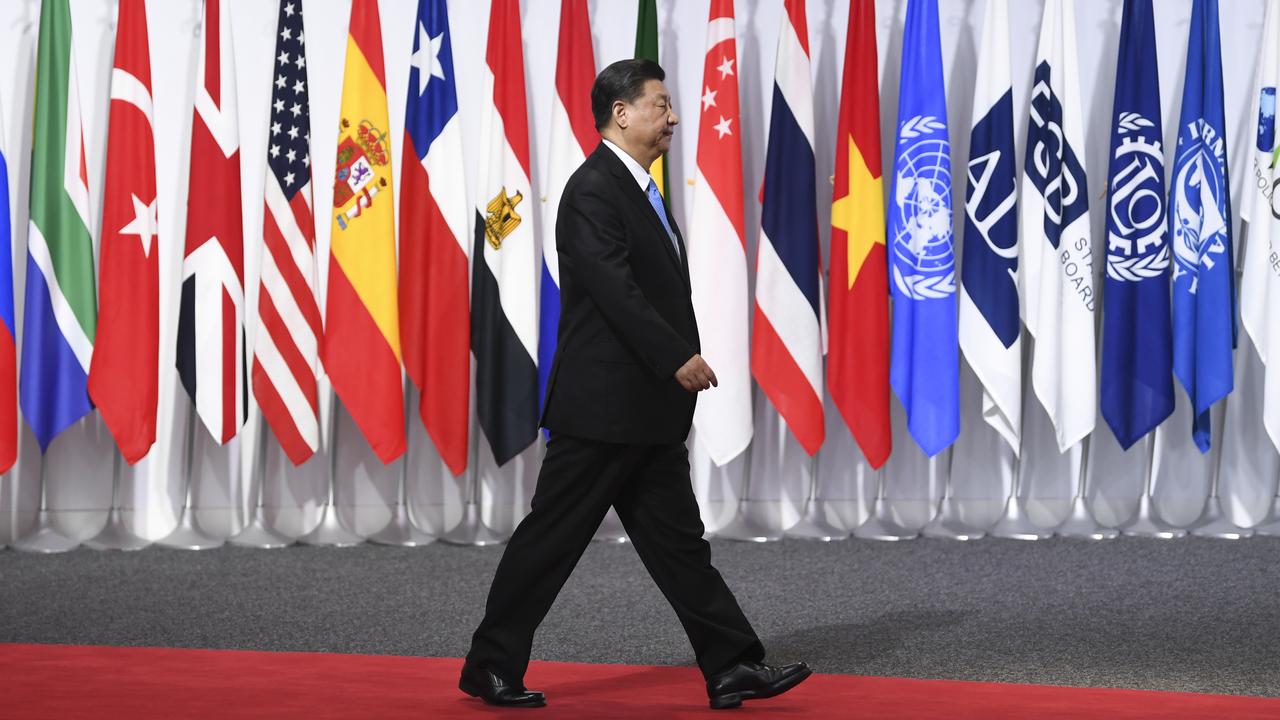
Beijing’s talking points are about peace, calm and stability.
So China’s foreign ministry quickly lashed out and accused Japan and Australia of “creating conflicts”. Spokesman Wang Wenbin took to the stage to demand the pair “stop interfering” in what it insists are its “internal affairs”.
He accused Australia and Japan of “sabotaging regional peace and stability”.
And the CCP-controlled Global Times news outlet followed up by accusing the West of “bashing China by playing the ideology and values card”.
Codes of conduct
At a high-level diplomatic exchange in March, China unleashed upon the United States.
Its leading diplomat, Yang Jiechi, attacked Washington’s failings – ranging from police killings and racial inequality through to its involvement in international disputes.
US National security advisor Jake Sullivan did something unexpected.
He didn’t disagree.
Instead, he offered a different perspective. “A confident country is able to look hard at its shortcomings and constantly seek to improve,” he said.
The Chinese Communist Party’s (CCP) list of shortcomings is becoming increasingly severe.
There is occupied Tibet.
RELATED: China’s new $81 billion blow to Australia
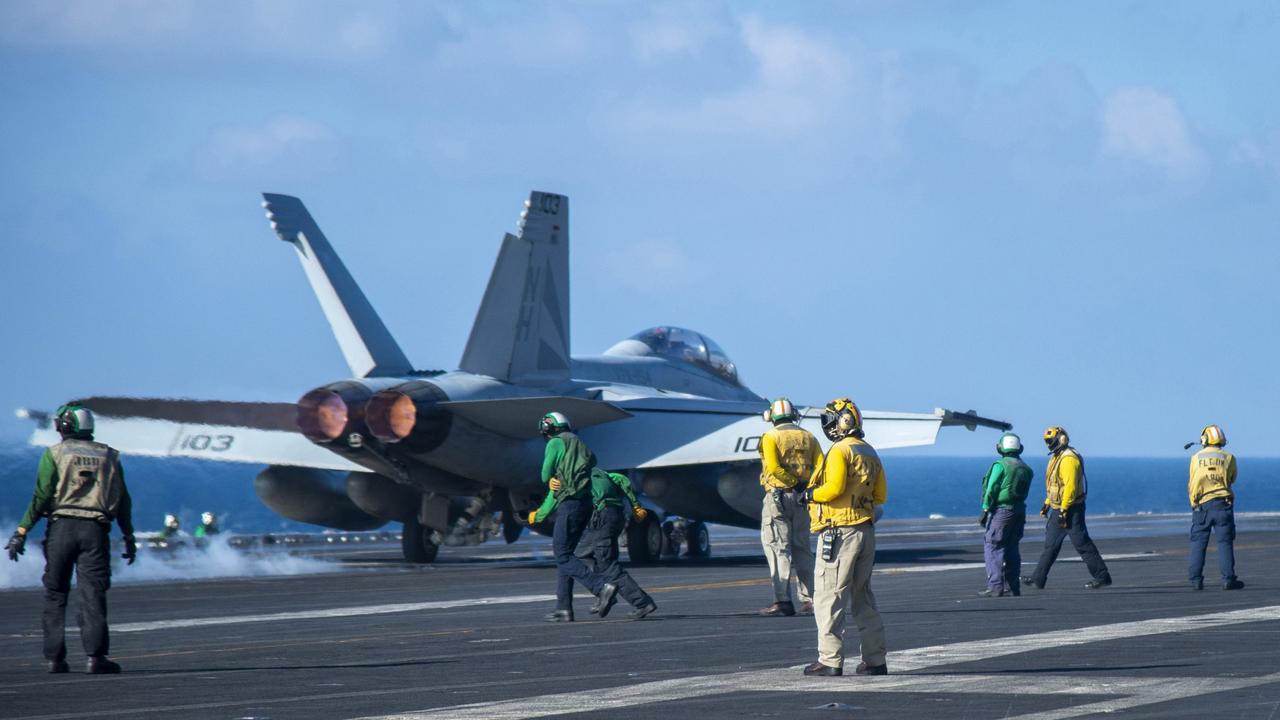
There are its illegal artificial island fortresses in the South China Sea.
There’s the way it’s using its fishing fleet and coast guard to elbow its way into the East China Sea.
There’s its brutal crackdown on democracy and dissent in Hong Kong.
There’s its ongoing efforts to assimilate Taiwan.
There’s the imprisonment of some one million Uighurs in heavily guarded “vocational training” facilities.
There’s its use of its overwhelming economic power to coerce nations into doing – and saying – what it wants.
There’s the way Beijing aggressively denies any of these are problems.
And that’s hardening the world’s attitudes against it.
Rules-based order
“We share serious concerns about reported human rights abuses against Uighur and other Muslim minorities in Xinjiang,” a joint statement by Japan and Australia after the meeting reads.
“We call on China to grant urgent, meaningful and unfettered access to Xinjiang for independent international observers, including the UN High Commissioner for Human Rights.”
Recent revelations include documentation detailing the forced sterilisation of Uighur women to “establish balance” with the growing immigrant Han population. The United States, Britain and Canada describe this policy as tantamount to genocide.
Prime Minister Scott Morrison will on Saturday attend the G7 summit to press a case.
He wants the world community to take punitive action against Beijing.
In a taste of what was to come, he said on Wednesday that he wanted to mobilise the World Trade Organisation and “modernise its rule book where necessary” to punish “bad behaviour when it occurs”.
It’s not an entirely benevolent stance.
Canberra wants the WTO to adjudicate in a dispute with China over barley exports. Beijing insists it’s an “anti-dumping” issue. Canberra says it’s a trade embargo.
But the clash has since ballooned to include wine, wood, beef, seafood and coal – among others.
“Where there are no consequences for coercive behaviour, there is little incentive for restraint,” the Prime Minister said.
Beijing dismissed Mr Morrison’s words, accusing him of being a “liar” and “one of the pillars of the US Indo-Pacific strategy which aims at containing China”.
“However, China won’t change its stance of defending its core interests and taking countermeasures when necessary. Such collusion just exposes their weakness,” says the director of the Australian Studies Center at the East China Normal University, Chen Hong.
“Morrison’s economic coercion accusation is a lie, and his call for WTO reforms aims to politicise and weaponise the organisation. This comment showed that Australia could hardly afford economic decoupling with China, despite Canberra-initiated tensions between the two countries. It is in urgent need of help from its Western partners to rewrite the rule book on the global economic order based on its interests.”
Beijing backlash
China’s foreign ministry spokesman Wenbin attacked the G7 summit.
The G7 nations “should do more to promote international co-operation in fighting the epidemic, advance world economic recovery and help developing countries accelerate their development, instead of creating conflicts and differences in the international community,” he said.
It’s in line with Beijing’s talking points:
It’s just more evidence of the way the US and the West are determined to halt China’s rise.
By criticising Xinjiang, Tibet, Hong Kong, Taiwan and the East and South China Seas, the West is seeking to deny China the same level of security they demand themselves.
By pushing back against its economic policies, the West seeks to deprive China of the same development they have enjoyed.
And criticism of Beijing’s belligerent diplomacy is just an attempt to stifle disagreement and prevent the CCP from “fighting back”.
Earlier, Beijing and Moscow announced they intended to take a united stand against the “perverse acts” of the United States.
A teleconference between the two nations’ foreign ministers saw Wang Yi and Sergey Lavrov resolve to “step up co-ordination” to confront shared threats.
“The US has formed small groups under the guise of democracy, used human rights as an excuse to interfere in countries’ domestic politics, and exercised unilateralism under the banner of multilateralism,” Wang reportedly said.
Beijing also thanked Moscow for its “righteousness and loyalty”.
“You criticised the slanderous acts from the US and the West. China appreciates this. We will also give Russia full political support to its defence of legitimate rights,” Wang added.
President Vladimir Putin later confirmed the strengthening relationship.
“Both Russia and China are interested in maintaining our co-operation on the international arena, and this co-operation is obviously a major element of stability in international affairs,” he said.
Jamie Seidel is a freelance writer | @JamieSeidel


